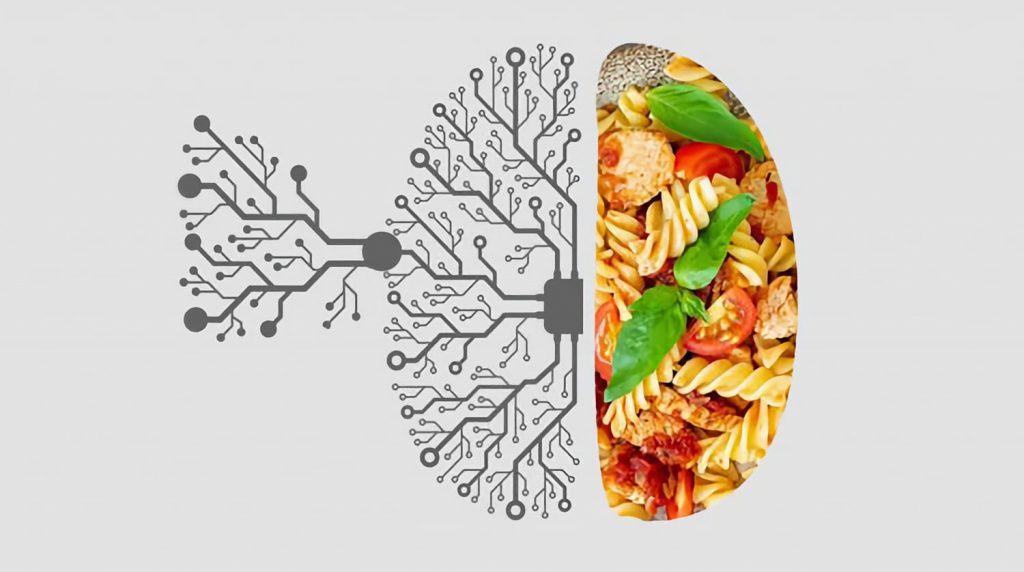The United Nations is seriously considering how to use the power of artificial intelligence (AI) for the public good. First of all, for food security. Any experience of successful application of AI technologies for the production of food and beverages is now closely evaluated by all market players.
Digital mind
Today, artificial intelligence (AI) has ceased to be science fiction. Every day, the number of areas in which AI is effectively applied is growing — from industry and transport to banking services and e-commerce — everywhere you can find examples of its use. And this is only a small part of the development directions.
There are huge prospects for the use of artificial intelligence technologies in the food industry. Prathik Joshi, founder of Plutoshift, author of nine books on AI, and columnist for Forbes, TechCrunch, and Silicon Valley Business Journal, argues that AI has the potential to “open new doors for food and beverage manufacturers and deliver clear benefits to food businesses.”
Although, in his view, the main area of application of artificial intelligence technologies lies in the area of improving the efficiency of production processes, this year some leaders in the food and beverage industry have made digital intelligence a key component to optimize their developments. With its help, companies have significantly accelerated the launch of new products to the market. And we have made significant progress in this. We analyze interesting cases.
Huge breakthrough
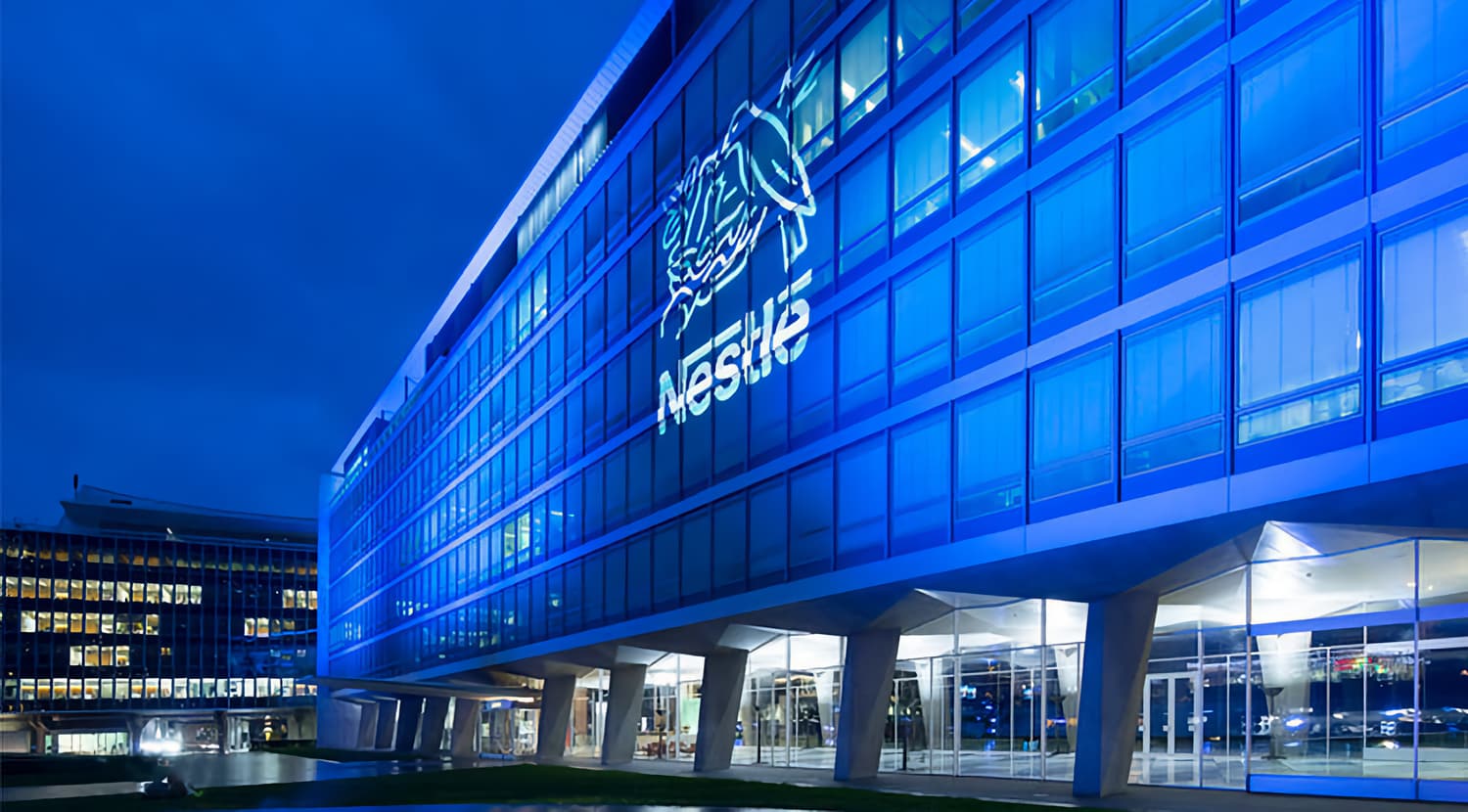
With the help of artificial intelligence, Nestle SA accelerated the development of its products by 60%. Since 2016, the company has been working on improving business processes related to R&D. And this high speed to market was achieved not only by restructuring the research and development process. The manufacturer is actively investing in various forms of machine learning to further improve its R&D process for even more breakthrough results.
In almost all categories, the average project duration at Nestle has been reduced from 33 to 12 months. But in the area of food and beverages, the world leader has achieved even more significant results.
Sometimes the projects of the food division of the company began to take nine months, which can already be considered an excellent achievement. But this was not enough for the management of the world giant. With the help of the active implementation of artificial intelligence tools, Nestle managed to reduce the development time for new products to a record six months. That is, the giant has become able to act faster than many startups.
This had a positive effect on all operations in the food and beverage sector of the international food company. What measures have been taken to achieve such a result?
Non-Artificial Results
The original accelerated schedule at Nestle was designed by simplifying the overall R&D process. The company has installed 14 «accelerators» in the process of working on a new product around the world, along all stages of the chain «from idea to store». Product testing is carried out in real conditions, but the development of the product itself began to take only six months.
The use of AI is spreading throughout the organization and is currently used in a variety of ways, including concept development, formulation development, raw material selection and quality assurance, clinical data analysis, advanced process control, and early problem detection.
“We have created an artificial intelligence concept engine that translates consumer insights and desires into concept proposals, which are then evaluated by our employees,” said Stefan Palzer, CTO of Nestle SA at the investor day held on November 29.
Concepts approved by the company are then prototyped and tested. As part of prototyping, another AI module is used, which optimizes the recipe development process itself.
Palzer emphasized that machine learning tools are now essential development tools to address the growing complexity of the innovation process, where products must taste good, be perceived as healthy, be sustainable and be accessible to consumers. To cope with a task of this complexity, Nestle has high hopes for artificial intelligence tools.
The company has developed a clinical data mining approach using machine learning, the application of which has allowed making new discoveries based on existing clinical studies. This tool is especially valued at Nestle — it allows you to create «new inventions» in terms of already conducted clinical trials.
Data, more data
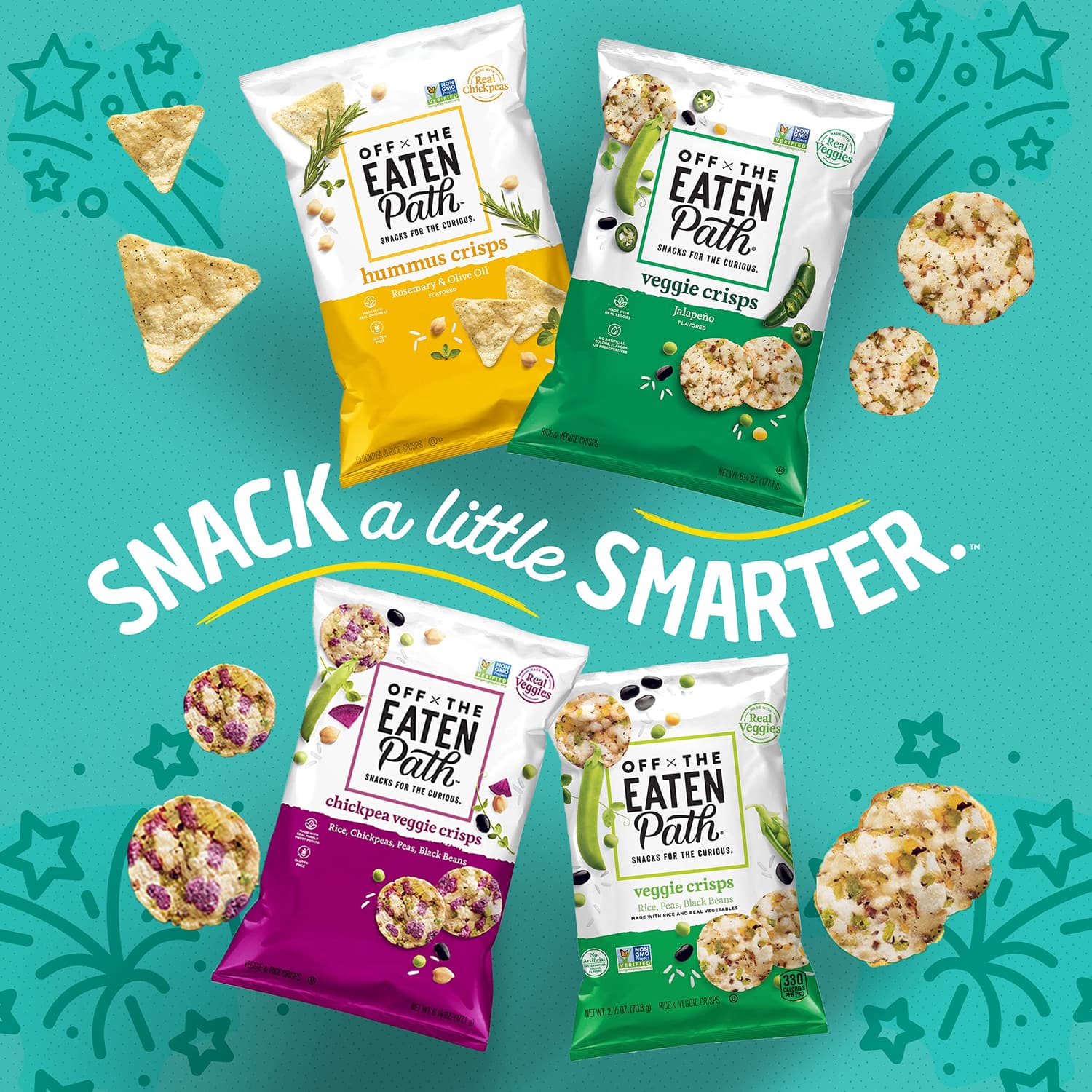
The traditional product development phase is based on asking focus group participants the questions “What and why do you like or dislike?” and «What would you like?». However, any product manager knows that the answers of the respondents, even if the latter answer sincerely, do not provide complete, and most importantly, reliable information.
The consumer research analytics we are accustomed to do not even come close to what ultimately determines buying behavior. It is absolutely not a fact that in two or three years, when the product is finally launched, the survey participant will like it and have a desire to buy it.
The PepsiCo development team turns to Tastewise for relevant insights. An analytical company from Israel uses machine learning algorithms in its developments, with the help of which it reveals what exactly and why people actually eat. To do this, Tastewise tools analyze a huge amount of online data.
So the developer reports that the tool they developed checks more than 95 million menu items, 226 billion recipe variations and 22.5 billion posts from social networks, not to mention other points of contact with consumers. All these sources demonstrate what people are discussing, searching for and ordering in real life.
This information helps you get a really «good idea» about what people are most interested in. It was after such deep analytics that PepsiCo came up with the idea to add seaweed to the Off The Eaten Path snack. If consumers were asked directly about their favorite flavors, hardly anyone would name algae at all. Usually this is not associated with a gourmet snack.
However, thanks to artificial intelligence, this need was identified. The Off The Eaten Path line is currently showing strong sales and the company is pleased with the results.
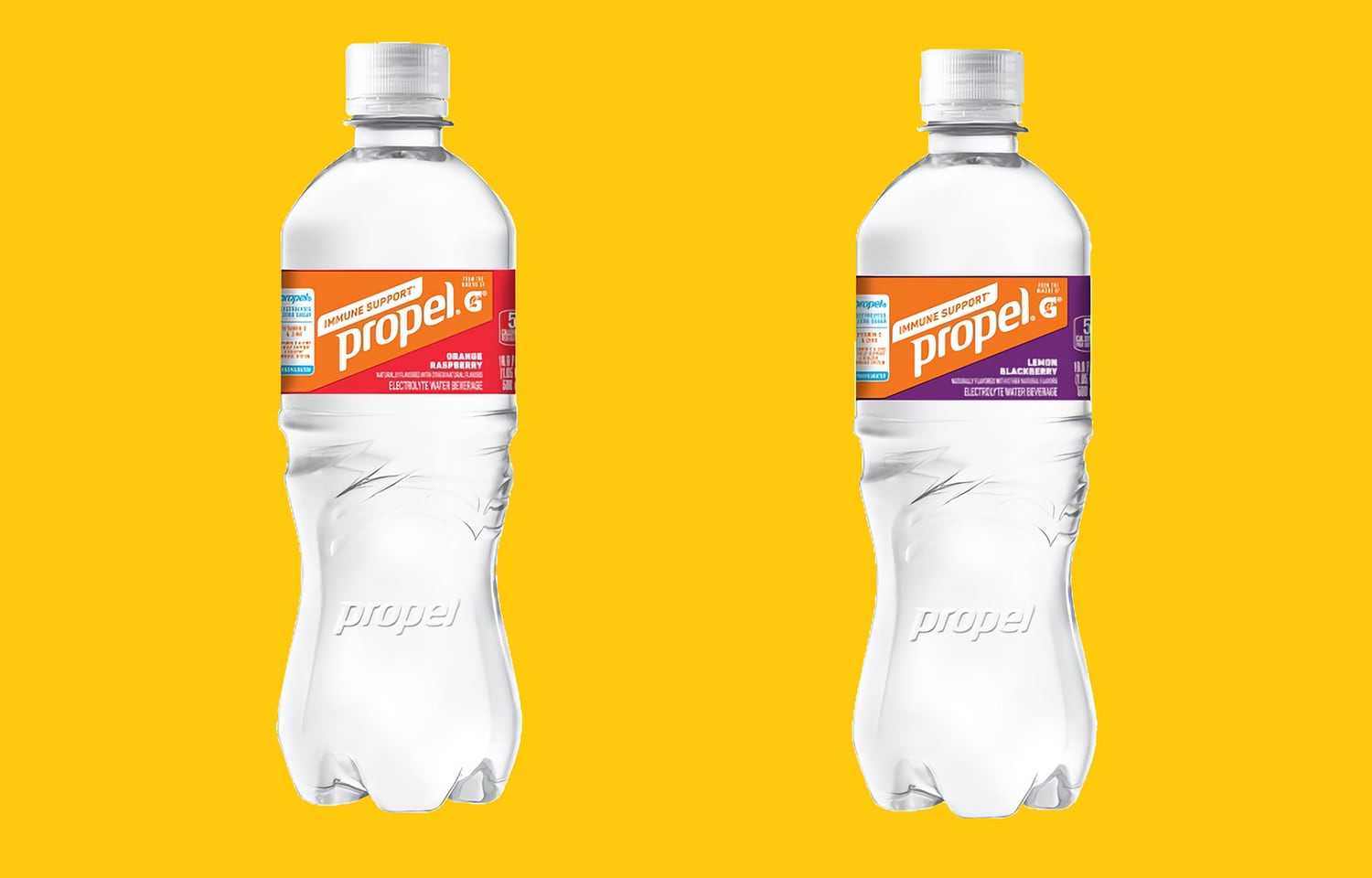
Another product that PepsiCo has used artificial intelligence to develop is the new Propel line of sports drinks, which include immune-boosting ingredients. A massive surge of interest in immunity has manifested itself in the post-pandemic period. And this trend is likely to continue for a long time, especially in regard to drinks.
The Trendscope tool, developed together with the developer Black Swan Data, UK, helped the leader in the production of soft drinks to identify this trend. Trendscope’s algorithms don’t focus on analyzing menus or recipes, but on food discussions on social media, blogs, and review sites, but not only. The smart software is context aware and also allows you to track the dynamics of different topics, down to flavors and ingredients.
PepsiCo’s development team calls this data-driven «social prediction» that benefits the pace of innovation.
Shelf space
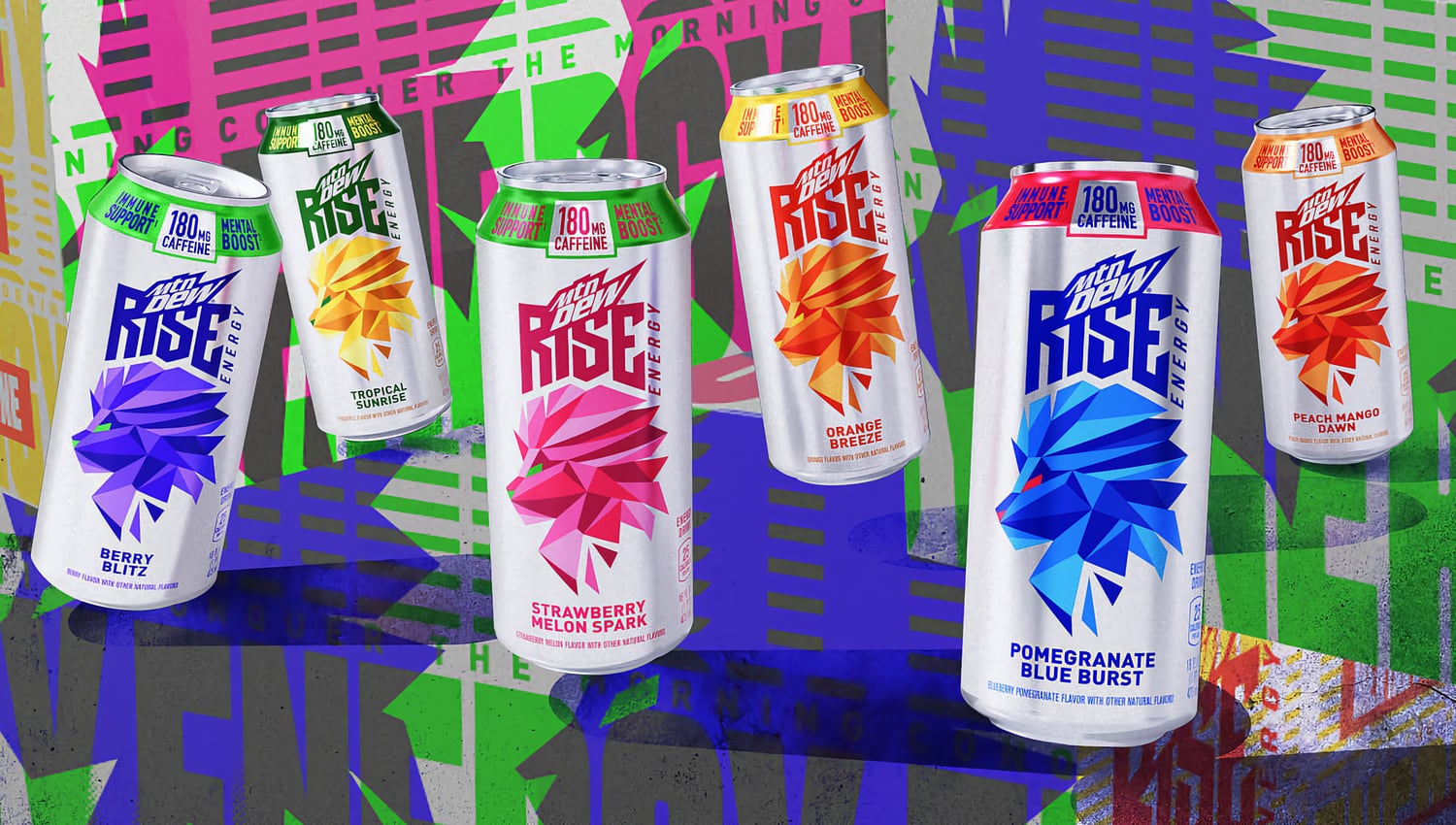
PepsiCo did not begin to be limited exclusively to the stages of R&D and production. Artificial intelligence in the company is implemented not only in all stages of the development process. With the help of AI, the marketing services of the leader in the soft drinks segment develop marketing campaigns and even select positions for new products on the shelf.
“When we at the company say: Yes, let’s launch a product in the X&Y retail chain,” says Stefan Hans, chief consumer insight and analytics specialist at PepsiCo, “we need to decide which store to put it on and on which shelf.” And it turned out that artificial intelligence is ideal for each subsequent stage of promotion. The global leader’s sales and marketing relies heavily on AI.
PepsiCo has collected a dataset of 500,000 US retail outlets with a set of data on retail sales, as well as information on 106 million households in the United States. Product teams are using these gigantic internal datasets to better segment their target audience and engage their target consumers in “unique, personalized ways,” from retail store specific spaces to online advertising.
So for the launch of Mountain Dew Rise Energy, the company determined which consumers were more likely to appreciate the drink, and then narrowed down the search to the most promising audience. The data allowed us to pinpoint which retail stores these key consumers were most likely to shop at and use a range of targeted tools such as assortment, merchandising and advertising campaigns.
«Intellectual» loyalty

In marketing, artificial intelligence is used quite actively. For example, PepsiCo uses it to control the quality of personalized digital advertising. Together with the developer CreativeX, algorithms were developed that check each ad unit to make sure that it complies with the so-called «golden rules». For example, that the brand logo is visible or the message is clear even without sound.
If you create 1,000 ads to reach 1,000 different consumer segments, using artificial intelligence is the only way to ensure proper quality control.
Conventional tools do not allow advertising to be tailored to those who might actually like it, so new technologies turn out to be much more effective than traditional TV and radio advertising, hitherto loved by FMCG players.
By leaps and bounds, such effective tools for managing consumer loyalty as messenger marketing are developing. The most current trend of the last five years for communication with customers in the latest text channels, whether it is the popular WhatsApp, Telegram, Viber or other instant messengers. At the same time, up to 80% or more of requests can be automated using chatbots in the first year, which also significantly reduces the costs of brands for managing consumer loyalty.
When it comes to customer relationships, for example, PepsiCo uses natural language processing (NLP) technologies to better assist anyone who might call with a question, suggestion, or complaint. A fairly simple NLP-based system helps to make sure that the interlocutor has a relevant request or offer.
PepsiCo has invested heavily in introducing artificial intelligence into its development business processes and plans to continue to invest in it in the coming years. At the same time, the company is very devoted in ensuring that both digital data and human empathy are taken into account when making commercial decisions. This task is almost the main one for the manufacturer’s marketing team.
Production safety
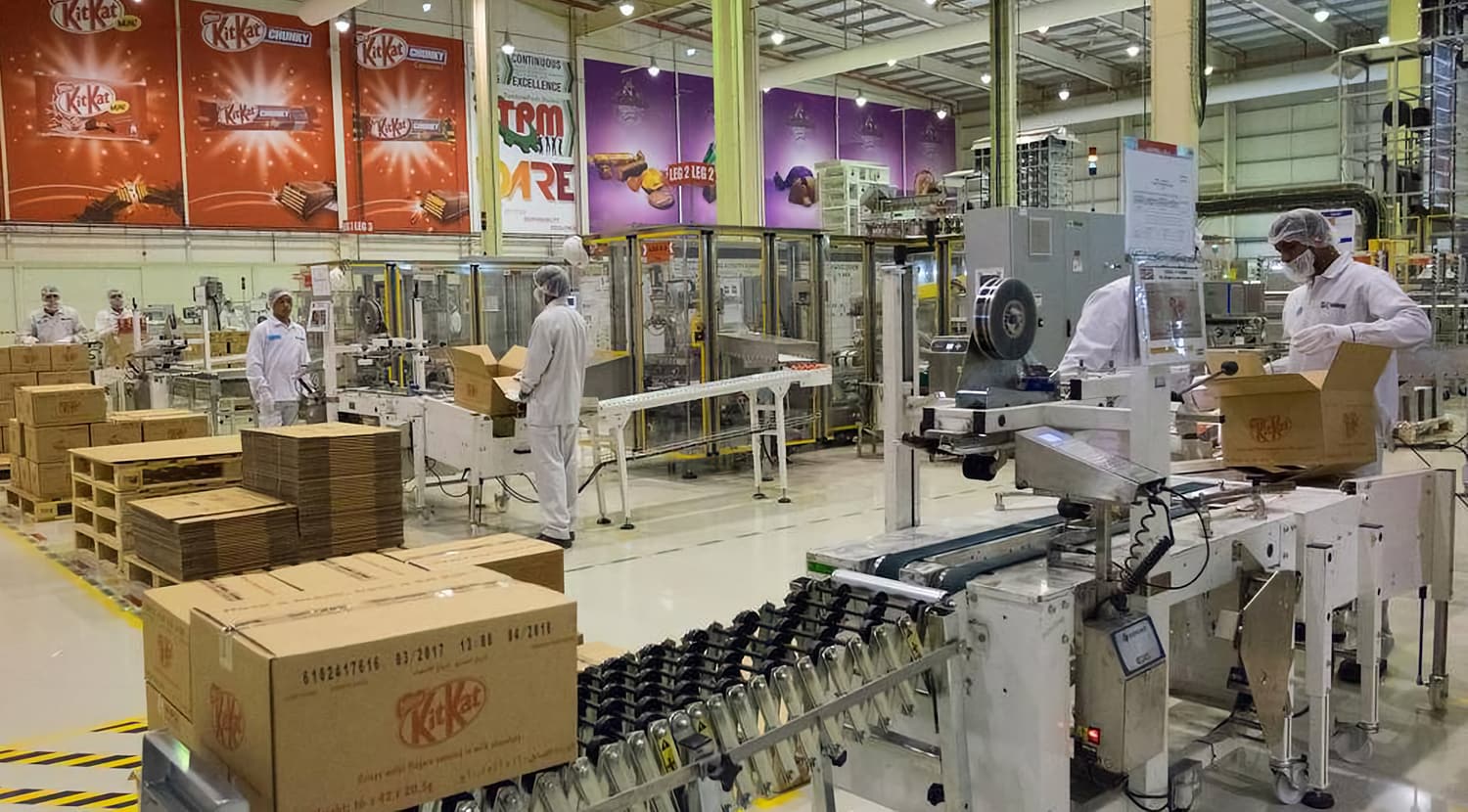
In addition to product development, artificial intelligence in manufacturing companies is used to improve production efficiency. For example, at Nestle, some KitKat product lines are self-regulating.
At some production sites, a huge number of attributes of incoming raw materials and semi-finished products are automatically analyzed, and then the quality of the output product is autonomously determined in order to promptly make adjustments to the technological process in the event of the slightest change in important parameters.
In addition, manufacturers are using machine learning approaches to preventive maintenance of production lines, reducing downtime, another bottleneck and headache for production managers of any size.
Usually, production facilities are forced to stop unplanned, thereby causing significant damage to enterprises, both large and small. These «unscheduled breaks» cost food companies $50 billion a year.
The use of artificial intelligence technologies has the potential to analyze thousands of incoming data from all systems in use and alert operators to impending equipment problems. Proactive response prevents them from escalating into real problems. In addition to reducing downtime, it can also significantly extend the life of the equipment.
Prospects are getting closer
Thanks to artificial intelligence, the food sector is becoming more efficient and effective. In the near future, we should expect even more innovative implementations. Intentionally analyzing cases of using AI tools for the development of new products, we were able to see with specific examples how significantly the launch time was reduced.
However, the possibilities of artificial intelligence for the food sector are much wider. With its ability to reduce waste, predict product markets, provide efficient 24/7 monitoring, improve cleanliness, manage costs and increase revenue, AI has the potential to play an increasingly significant role in the food and beverage industry.
At the same time, some problems of using artificial intelligence in the food industry that hinder its development can be identified.
First, due to the high cost of deploying AI, only the big players in the food industry can afford bold experiments at present. Undoubtedly, as more investments are made, solutions will be available to smaller industries. But no one undertakes to estimate how long it may take.
Secondly, as in almost all technological developments, the use of artificial intelligence is accompanied by a banal fear based on false assumptions that the development of artificial intelligence will lead to job cuts and people will lose their jobs.
Thirdly, despite the long experience of using AI in food production and beyond, AI technology itself is still in its infancy. That is why many businesses are hesitant to make investments, postponing it until it is finally clear what the true potential of artificial intelligence for the industry is.
That being said, one must understand that food and beverage manufacturers have been known to be committed to stand by their proprietary technologies. Therefore, only part of the developments will be in the public domain.
However, the search for answers to these problems of artificial intelligence will continue, and more and more often we will see how players in the food industry are expanding its use.
